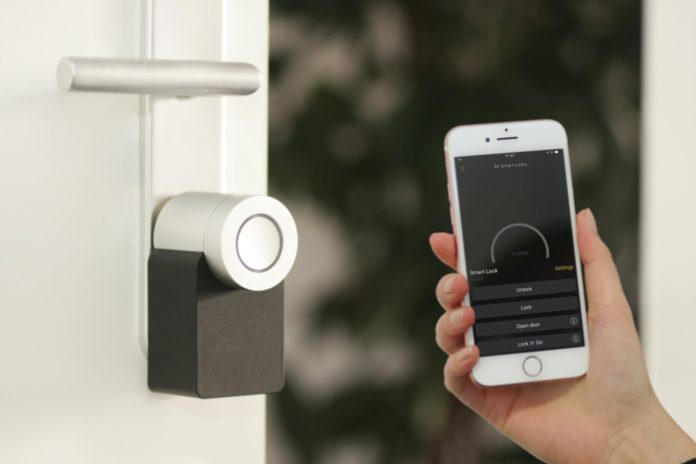Home security systems are complicated enough. Setting them up can be adventures, and not always the good kind. At first, you will trigger your own alarms at least a few times, and that is even assuming everything works. Why make them more complicated with automation?
As you have probably noticed in recent years, technology is good at solving problems. However, it also creates problems of its own. One of the questions you are probably asking yourself is whether automation of a security system solves more problems than it creates. We are going to endeavor to answer that question today by going over 10 things you need to know about automating your home security system. Surprisingly, it is easier than you would think.
Automation Raises the Value of Your Home
Let us start by focusing on what automation does for you. No matter what home security technology you employ, if it has an automated component then it will inevitably raise the value of your home. This is because automated security systems can communicate with other automated appliances. These upgrades are built into the home itself. As a result, selling your home means selling the automation with it.
Security Cameras Can Be Automated
When most people think of security systems, they think of the all-seeing power of security cameras. However, security cameras rarely work how people think they do. In a home, most security cameras are automated in some way. They use motion sensors to detect when something is in their field of view, and only then do they start recording. At a certain level of automation, you can even get notifications for this.
How Security Camera Notifications Work
Let us focus in on security camera notifications, as those have become a huge selling point for many people. Basically, what happens is that your security camera app sends you a notification when the camera activates. You can then view what it sees. Use this view to control the camera with more sophisticated cameras, and it even gives access to the controls of your alarm system if you have one of those.
You Can Have Automated Locks
Since most burglars’ plans for breaking into home start and end with trying to open the front doors, keeping your front door locked while you are away and at work is a shockingly strong security measure. The problem is that it is an easy chore to forget. Automated locks ensure that your doors lock after a set amount of time. In addition, you can set them to unlock via a mobile phone app, too.
Alarms Can Be Scheduled
The biggest thing that causes people to be hesitant over getting an alarm system is the concern that they will trigger it themselves on accident. This is always a possibility, but you can lower that possibility tremendously by automating the alarm to work on a schedule. This means that the alarm will activate at a certain time and deactivate at a certain time without you having to input anything. If you leave for work at 8:30 and get home at 6:30, you can set it to activate at 9:00 and deactivate at 6:00. Then you never have to tinker with it.
You Can Even Program It to Call the Police
Setting a schedule is part of an automated alarm, but the programming you can do goes much deeper than that. You can also decide when and if the alarm calls the police. For instance, let us say your alarm is active during the day and at night. You can make it call the police instantly at night but wait for a few minutes before calling the police during the day.
This Comes with Notifications, Too
Similar to the security camera systems mentioned above, automated alarms can be set to send you notifications when they are triggered. Like before, you can set the sensitivity of these triggers. An alarm can send you a notification, and then call the police a few minutes later. Of course, you can also set it up to not call the police at all or to call the police immediately.
Let’s Talk About Cybersecurity
This is not always a concern on the part of the customer, but some people wonder how secure automated security systems are against cyberattacks. The answer is that they are actually more secure than most security systems. Remember, most security systems already use WiFi. Automated systems can install automatic updates, which turn their security vulnerabilities (everything has security vulnerabilities) into moving targets. This makes it far less likely that a hacker is able to find a single exploit that works on multiple homes (or even one home).
Automated Security Lowers Insurance Costs
Insurance companies actually hate this, but because automated security has such a clear positive effect on the liability of homes, it means a few things for your premiums. For one, you pay less since you are at less risk. In addition, you are more likely to have evidence of damages.
Automated Security Is Easier to Install
This is usually what surprises people the most. However, think about it: Automated security is newer than your older alarms and cameras. Newer technology tends to be sleeker and friendlier to the user. Automated security follows that same trend, making it easier to deal with in all ways.
Conclusion
Basically, automated security is a strict upgrade from normal security systems. Everything that can be better is better with automation ― its setup, the value it adds to your house, the cost of the security, and the manner by which you interact with it. Moreover, as an added bonus, many automated alarm systems can serve as hubs for communicating with automated appliances. Therefore, if you want an automated air conditioner or oven, then many home security system apps will be able to link with those appliances as well.
If you want to know more, visit a home security company website.
Find a Home-Based Business to Start-Up >>> Hundreds of Business Listings.















































